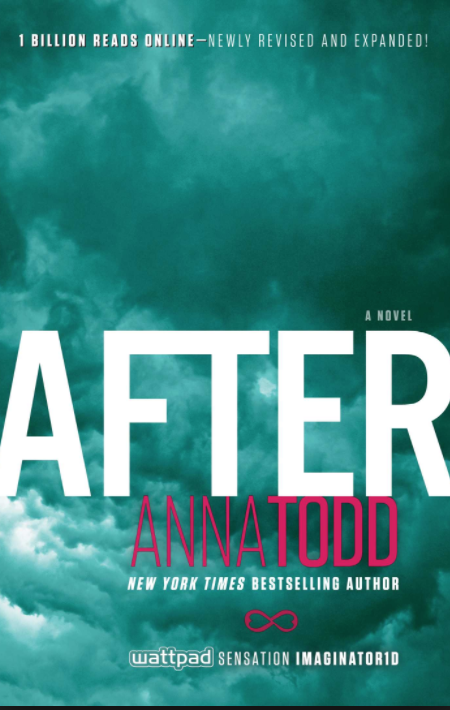At age 27, Taylor Swift has finally decided to prove that she’s grown up and matured by releasing “reputation,” an album advertised as the “new Taylor’s” attempt to leave the meek and immature “old Taylor”—and all of her drama—in the past. Deliberately tailored (Taylor’d?) to feel diametrically different from the songs of her previous albums, the songs of “reputation” each attempt to bring something new to the table in terms of sound effects, composition and pacing.
Unfortunately, new doesn’t necessarily translate to better. A disappointingly large amount of the songs in “reputation” fall flat. Many of the aggressive sound effects and editing used by Swift in an attempt to emphasize the edgy nature of the album instead make about half of the songs in the album sound loud and overbearing. Furthermore, Swift had a tendency of repeatedly using the same failed elements in multiple songs. As such, the worse half of the album will not be reviewed.
As a disclaimer: Hidden references within song lyrics hold no sway in my reviews. While many mainstream song “reviews” are glorified plot summaries of the lyrics, my reviews are concerned with actually evaluating the songs’ success as pieces of music. Truthfully, whether or not Swift throws shade on her past boyfriends or other celebrities is entirely irrelevant—both in terms of real life and a song’s rating. However, it should be noted that bad lyrics can detract from a song’s rating, as they make it harder for the listener to connect with and immerse themselves into the song.
While Swift’s overeagerness to assert her newfound maturity ultimately detracted from the album’s success, there are a few hidden gems. Hopefully, this review will save you the trouble of having to unearth those gems yourself.
1. “Getaway Car”
Rating: 5/5
Hoo boy, this song is good.
“Getaway Car’s” success primarily stems from its usage of and improvement upon familiar aspects from Swift’s previous songs. The storytelling lyrics are reminiscent to those of country Swift’s songs, and the song structure, one that steadily builds upon a catchy chorus, is strikingly similar to that of 1989 Swift’s songs. Most importantly, Swift manages to build upon these familiar elements by emphasizing the powerful beat of the song, a recent tactic of hers that is present in nearly all of her other “reputation” songs.
“Getaway Car” manages to maintain a perfect balance of slowly building up to a meaningful climax while also keeping the rest of the song engaging enough to stand on its own. Listeners will never feel like they’re waiting around for the good part of the song to come on.
That’s not to say that the climax isn’t the crown jewel of the song (and arguably, the entire album). Its sheer presence, magnified by a sudden introduction of strings, piano and extra vocals, is guaranteed to uppercut your soul straight to the stratosphere. If you can listen to this song without feeling some form of emotion or excitement, chances are this album isn’t for you.
2. “Don’t Blame Me”
Rating: 4/5
Swift’s major accomplishment in “Don’t Blame Me” is creating a song that is predictable yet engaging. Throughout the song, there are clear lulls and bursts of activity that are deliberately set up in such a way as to be easily anticipated by the listener. Almost unconsciously, listeners will be able to tell the difference between when it is time to jam and when it is time to simply listen. As a result, Swift effectively prevents listeners from prematurely forming expectations of the song that might end up differing from the song itself.
In “reputation,” Swift tried out a lot of new tactics in her music. Most didn’t work out, like the sound effect in “…Ready For It?” that can only be likened to bass-boosted flatulence. However, some, like the hymn-like vocals used in “Don’t Blame Me,” are undeniably successful, creating the darker, more mature atmosphere that Swift hopes to achieve throughout the entire album.
Furthermore, unlike with many of Swift’s other “reputation” songs that attempt to present themselves as gritty or aggressive, you won’t need an icepack from “Don’t Blame Me’s” lyrics beating you over the head with their meaning. As such, it’s significantly easier to immerse yourself into this song than, say, “Look What You Made Me Do,” where the lyrics are uncomfortably specific to Swift’s drama-filled life.
3. “Gorgeous”
Rating: 3.6/5
If there’s anything to take away from “Gorgeous,” it’s that the “old Taylor” clearly isn’t as dead as she would like you to think she is.
In terms of subject matter, “Gorgeous” takes a step back from the edgy, angst-filled themes that other “reputation” songs are practically drenched in, and it instead returns listeners to a topic that they should all be familiar: Swift pining after other men. Furthermore, Swift’s self-deprecating sense of humor that she used in “Shake It Off” and “Blank Space” makes its return in “Gorgeous.” As such, “Gorgeous” feels more like a song that could have been released in Swift’s “1989” album than “reputation.” Still, Swift takes steps to ensure that the song is able to stand out as a unique piece of music. Certain unique touches, like the use of a triangle to mark off each time that the chorus starts, give the song a distinct feel that listeners can easily latch onto.
Ultimately, the only thing holding “Gorgeous” back is a lack of presence. Sure, the beat is catchy, but in comparison to other songs in “reputation” like “Getaway Car” and “Don’t Blame Me” or songs from previous albums like “Out of the Woods,” the song feels a little bit plain after a few replays.
4. “Dancing With Our Hands Tied”
Rating: 3.2/5
There are only two things that I truly hate in this world: cold cut sandwiches and EDM dance interludes. In terms of the latter, I feel that they all sound the same, drastically reduce a song’s depth and are extraordinarily overused in modern-day music. However, in spite of Swift’s downright sacrilegious decision to utilize such a cardinal sin in “Dancing With Our Hands Tied,” it still manages to sound pretty good.
For once, the song’s main selling point isn’t its chorus or its main melody. I found that the saving grace of “Dancing With Our Hands Tied” was actually its impressive counter-melody—a thrumming ascension of notes that deliberately yet subtly shape the song’s atmosphere. For those who don’t know, a counter-melody is defined as a subordinate melody that is often played in accompaniment with a principal melody (which is usually played during the chorus). In combination with a powerful beat, the counter-melody of “Dancing With Our Hands Tied” affords the song an undeniably unique vibe. As a result, whereas most songs with EDM dance interludes often feel one-note and repetitive, Swift ensures that there is at least some level of depth to “Dancing With Our Hands Tied.” Thus, while I am morally obligated to dislike “Dancing With Our Hands Tied,” I must admit that I am definitely going to listen to it more than once.
5. “New Year’s Day”
Rating: 3/5
Strategically placed at the end of the album, “New Year’s Day” is Swift’s effort to reassure her audience that she isn’t entirely consumed with vengeance. Yet.
Standing in stark contrast to the aggressive “Look What You Made Me Do” and cathartic “Getaway Car,” “New Year’s Day” is a calmer song that seems to aim towards creating a more sobre, almost melancholy atmosphere. It’s definitely not a song that you would jam out to with your friends, instead being more of a song that you would listen to in order to relax during a long car ride home. It’s hard to criticize the song’s simple execution—its composition simply consists of a few chords on the piano and Swift’s soft crooning, though both sound exceptional. However, it’s also hard to award the song any significant merit in terms artistic creativity—nothing about the song is extraordinarily revolutionary or groundbreaking. Ultimately, however, “New Year’s Day” is a reliable song for unwinding after a long day.
6. “End Game”
Rating: 2.8/5
On one fateful day in the Grille, I considered buying a bottle of kiwi-strawberry-flavored Vitaminwater Zero to quench my considerable thirst. I had never had such a variant of Vitaminwater before, but the five dollar bill in my lunchbox assured me that I could, at the very least, afford to try it. One sip, several gags, and a punted Vitaminwater Zero bottle later, I learned a valuable lesson. Just because you could do something doesn’t necessarily mean that you should.
Likewise, just as Ed Sheeran and Swift could spend the majority of “End Game” rapping, they would probably be better off suited to actually focusing on singing.
That’s not to say that “End Game” doesn’t have its moments—certain parts (“Big reputation, big reputation…”) will undoubtedly get stuck in your head. Unfortunately, the other parts of the song feel relatively lackluster. The song spends too much time trying to make the inclusion of Future and Sheeran worth it, resulting in both the pacing of the song and Future’s and Sheeran’s performances feeling rather unnatural.
7. “This Is Why We Can’t Have Nice Things”
Rating: 2/5
Simply put, “This Is Why We Can’t Have Nice Things” is a slightly inferior version of “Bad Blood.”
The main flaw of “This Is Why We Can’t Have Nice Things” is that its lyrics are excessively specific to Swift’s drama-filled life—arguably to the point where it starts to become uncomfortable if you follow the lyrics too closely. Furthermore, not only are Swift’s angst-drenched lyrics excessively specific, but they’re also excessively frequent (appearing in practically every single verse). Thus, while the chorus of “This Is Why We Can’t Have Nice Things” is actually fairly catchy (though it slightly lacks the layers of complexity that are otherwise common in the rest of Swift’s songs), the fact that every succeeding verse practically beats you over the head with Swift’s vengeful agenda is disconcerting.
Still, “This Is Why We Can’t Have Nice Things” is unique from every other song in “reputation” in the sense that certain moments—like Swift halting the music to cackle about never forgiving her enemies—are actually pretty funny. Ultimately, it’s Swift’s haughty attitude that makes, but also breaks, the song.
8. “Call It What You Want”
Rating: 1.8/5
Speed-reading comes with many risks. One of the major risks is that, if you’re reading something boring (like a certain book that rhymes with “Sane Boston”), you can reach the end of a page and have retained absolutely nothing of substance, forcing you to reread the page all over.
Listening to “Call It What You Want” often left me feeling as if a similar phenomenon had taken place. As the song came to its conclusion, I found myself questioning if I had somehow zoned out while listening to it. Even after replaying the song two, three, four more times, I still found myself left with the same feeling as if I had missed out on something.
Ultimately, it’s the fact that “Call It What You Want” neither did anything extraordinarily outstanding or abhorrent that it receives such a mediocre rating. It’s not good. It’s not bad. It just is.














